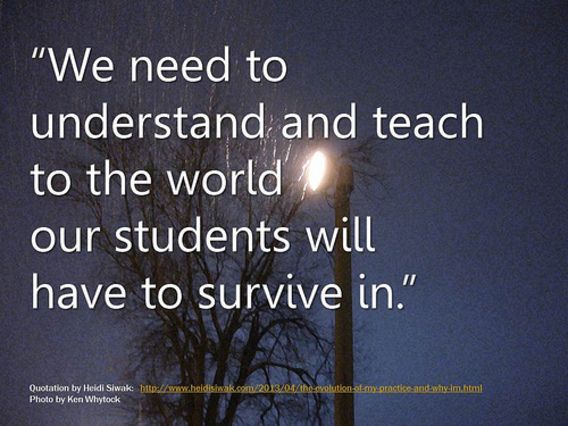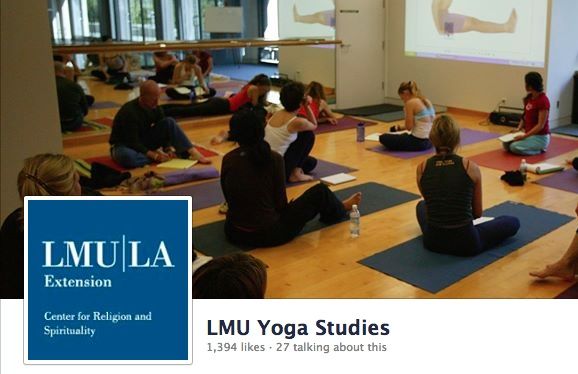Tag Archives: Education
A Bubble in MBA’s?
“In 1958, America awarded 5,000 MBA`s the rest of the world produced none. Last year we produced 200,000 MBA`s, the rest of the world produced tens of thousands.”
~Jim Rogers
University Launches First Yoga Master’s Program in US
Thinking about yoga school? How about getting your master’s degree? Now you can. Loyola Marymount University in Los Angeles is the first in the US to offer an honest to goodness two-year masters degree in yoga studies.
A little pricier than your average 200hr training, $18,000 a year tuition at LMU ($1,000 a unit) will afford you the opportunity to learn how to read Sanskrit and to study the history, philosophy, physiology and anatomy of yoga and how it relates to religion and spirituality. In your second year you may pilgrimage to yoga’s motherland India to “soak in the culture.”
This is incredible work. The practice of yoga continues to grow.
It’s interesting to note that people did not used to pay their yoga teacher to learn. One developed a consistent practice and listened to their guru.
Still, this program is a continuation of the massive growth of yoga. In 2013, according to surveys, there are over 20 million yoga practitioners. The world will certainly be a better place if the numbers continue to increase. Let’s hope that more of these programs begin to sprout up in years ahead, educating tomorrow’s leaders of our society and raising consciousness across the world.
Every morning, in big cities, suburbs and small towns across America, parents send their children off to school with the highest of hopes. But a shocking number of students in the United States attend schools where they have virtually no chance of learning. We all have an opportunity to change this. We can all continue our learning and growth and I pray that Lucid Practice is a small venue for that.
Great Teachers Learn With Their Students
 A small victory on the second day of school this year still has me smiling. It was something very simple, a small bit of knowledge that I had just learned and thought my students already knew. However, when I told my high school students that typing the letter d before someone’s Twitter handle would send them a direct message, it was like the heavens opened up and my students saw me as someone who actually knew what I was talking about. I have come to expect that students will appreciate my knowledge on some sophisticated software program, but enter the world of social media and they think I’m too old to understand.
A small victory on the second day of school this year still has me smiling. It was something very simple, a small bit of knowledge that I had just learned and thought my students already knew. However, when I told my high school students that typing the letter d before someone’s Twitter handle would send them a direct message, it was like the heavens opened up and my students saw me as someone who actually knew what I was talking about. I have come to expect that students will appreciate my knowledge on some sophisticated software program, but enter the world of social media and they think I’m too old to understand.
I try to remind my students that I was hanging out on online bulletin boards before they were even born. They laugh when I tell them I skipped out early on my sophomore homecoming dance to install my 14k modem and got online while my girlfriend slept on the couch, annoyed by my need to connect. Yet, when it comes to their world, one that is always on, always connected, they see me as a foreigner.
As tech leaders, we must understand that a connected life is all our students know. They have learned to share and over share online. They want instant access to knowledge and are not afraid to tackle a task well beyond them because they know that there is probably a video on Youtube already describing how to do it. They want to be a part of a culture that is always sharing, always creating, always connecting.
Our schools must reflect their culture. Gone are the days where we exist solely to teach them. We must be ok with learning with them. We must not be afraid when learning goes beyond our own knowledge base. We must be confident enough to not fear the students who know more than us. We must allow our students to go much further in their learning than we ever imagined. We must not hold them back.
The global world they are entering is moving at breakneck speeds. There is so much to learn and understand. However, if we chose a path of learning with our students, they (and we) will be just fine.
Origonally Posted at www.toddnorton.me
Image via Big Think
Musk, Branson, “star” in new Khan Academy classes
A big theme of this LP week has been learning. We have pushed our minds to learn more and more about “material.” It’s interesting trying to balance an Eckhart Tolle approach of Presence, and disconnecting our minds from a “physical, material” world, with “turning on” our minds and pushing ourselves to learn more of what we interpret to be knowledge.
Personally, I like to take in flow from around the world and be present about it. Not judge it, but just think about it, and maybe “learn” from it.
One of my favorite platforms I have “learned” on is Khan Academy. I was able to watch lots and lots of videos in Sal Khan’s finance and capital markets section. I felt like I walked away with a lot of material on finance, accounting, and trading. It was a cool experience.
I loved when I saw that Sal is moving away from a model of giving lessons himself, to a model of bringing in “star” people to teach lessons and learn from. I hope this continues. EdX is also in the process of mastering this model. They are scouring college universities to find the “best of the best” lectures on specific topics.
Our world will benefit from this. I like that we are going to have an opportunity on KhanAcademy and other platforms to learn about how people approach their lives, businesses, etc. With business as an example, small insights into the mind of some of the world’s greatest entrepreneurial thinkers can be invaluable to others building businesses today and into the future.
Enjoy the feature. For the third time this week we get to listen to Elon Musk.
4 Natural Alternatives to Reverse the Overmedication Trend
Overmedication in America
As a society, we’re severely overmedicated in America. Too often, we are willing to take the easy way out by swallowing a pill. We’re passing this ritual down to our kids.
Many of us anesthetize ourselves by plopping in front of the TV or using drugs to “zone out” and escape life. This too, is being passed down.
Overmedication in Schools
I recently read a mediocre yet alarming article on the overmedication of children who are diagnosed with ADD & ADHD. The article reads, “Walk into any American high school and nearly one in five boys in the hallways will have a diagnosis of attention-deficit hyperactivity disorder.”
Our solution? Pills & iPads. If a kid is misbehaving, we are so willing to prescribe stimulants & amphetamines or place an iPad in his/her hand allowing them to “zone out” and thus stop “misbehaving.” We’re not saying ADD isn’t real but we are too quick to diagnose & treat unnaturally.
Natural Alternatives to Overmedication:
- Change in diet (eliminate processed food & add more fresh veggies & fruit) Has anyone seen the food in cafeterias of US public schools? I don’t like to be negative but it’s deplorable. You wouldn’t eat your 11 year old nephew’s cafeteria food the same way you would’t eat your dog’s food.
- Exercise/Sports/Outdoors (real sports, not video games) The amount of time allocated towards outdoor recess in US public schools has decreased dramatically in recent years. One of my best friends is a teacher at a public elementary school — he says that the kids have been so conditioned to technology that instead of going outside to play football or soccer, they’d rather sit inside & play computer games.
- Yoga (UCLA 2003 study scientifically proved that yoga helps kids relax, focus, & feel better about themselves) A natural alternative that requires a bit more discipline than popping a pill or toggling a touchscreen.
- Prayer/Meditation/S
pirituality (not necessarily in school but in general) The sooner kids realize the importance of spirituality, the better. They will learn to connect w/ themselves, each other & the earth at large as opposed to “connecting” w/ a virtual cornstalk in Farmville.
Kale and Spinach Growing in an organic garden next to an elementary school
What are the short+term effects of chronically bathing young brains in stimulants and amphetamines & solving their “bad behavior” by handing them electronic devices?
For starters, it’s rare to see a teenager in America who can go 5 minutes without their smartphone.
Furthermore, it’s proven that those subjected to ADD pills are more likely to experiment w/ illicit drugs later on.
This is a new trend. The short+term effects are alarming but the long+term effects could be catastrophic.
We can reverse this trend. The four alternatives above are only the beginning.
Excerpt from WSJ article on overmedication::
“History has already taught us that overprescribing stimulants to millions of Americans leads to dependence, addiction and overdose. By medicating children for wiggling in their chairs, losing their homework and shouting out answers, we are not teaching them vital coping skills to manage their behavior. Instead, we are teaching them to take a pill. One day, we’ll look back and wonder: Why did we do this? Again.
Walk into any American high school and nearly one in five boys in the hallways will have a diagnosis of attention-deficit hyperactivity disorder.According to the Centers of Disease Control and Prevention, 11% of all American children ages 4 to 17—over six million—have ADHD, a 16% increase since 2007. When you consider that in Britain roughly 3% of children have been similarly diagnosed, the figure is even more startling. Now comes worse news: In the U.S., being told that you have ADHD—and thus receiving some variety of amphetamine to treat it—has become more likely.”
Lucid Practice is rooted in positive energy so hopefully this post doesn’t come across as a negative. The Lucid Practice mission is to help people, hopefully this post serves as a helpful reminder that overmedication is a problem that needs our attention.
What’s your opinion?

